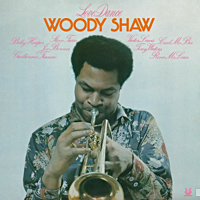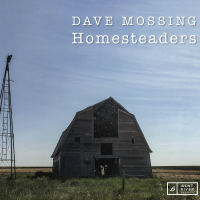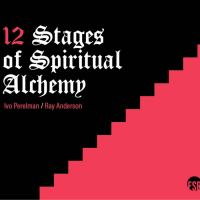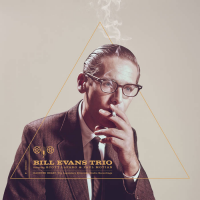Home » Jazz Articles » Bailey's Bundles » The Led Zeppelin Papers: Led Zeppelin II, Deluxe Edition
The Led Zeppelin Papers: Led Zeppelin II, Deluxe Edition
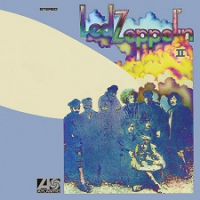 Led Zeppelin
Led Zeppelin Led Zeppelin II, Deluxe Edition
(Atlantic Records)
1969/2014
Hey, man, I take it all back! This is one fucking heavyweight of the album Led Zeppelin II. OK—I'll concede that until you've listened to the album eight hundred times, as I have, it seems as if it's just one especially heavy song extended over the space of two whole sides. But, hey! you've got to admit that the Zeppelin has their distinctive and enchanting formula down stone-cold, man. Like you get the impression they could do it in their sleep...
...Hey, I know what you're thinking. "That's not very objective." But dig: I also listened to it on mescaline, some old Romilar, novocain, and ground up Fusion, and it was just as mind-boggling as before. I must admit I haven't listened to it straight yet—I don't think a group this heavy is best enjoyed that way.
—John Mendelsohn, Rolling Stone December 13, 1969
Mescaline, indeed, the cheeky cad. And Romilar? This was before the Controlled Substances Act of 1970. You could have done better than this.
Led Zeppelin (Atlantic, 1969) was not my introduction to the band. That introduction was Led Zeppelin II with its sinister album art aping the debut's cover of the burning Hindenburg, shadowed, and juxtaposed with the band sitting among nether-world flying aces adapted from a photograph of the Jagdstaffel II Division of the German Air Force during World War I by graphic artist David Juniper. It was downright decadent. And the music...well...
Like "Good Times Bad Times" kicking off Led Zeppelin, "Whole Lotta Love" proved a game changer in introducing Led Zeppelin II. It was a guitar riff, not unlike that in the Rolling Stones' "Honky Tonk Women," released only four months previous, that captivated, mesmerized, and squeezed the pleasure glands of a generation of music fans tired of the innocent popestry of the "Summer of Love" and ready for the hedonistic experience of the 1970s before any of them knew what hedonism was. Like many of the selections on II, "Whole Lotta Love" is a rock suite with sections differing in tone, time and timbre, bursting with drama and pathos.
"Whole Lotta Love" is a piece of Led Zeppelin's overall mutation of the blues DNA. It is a riff, repeated, not unlike the several dozen championed by John Lee Hooker or Howlin' Wolf in their single-chord drones that reach back to the red Mississippi Delta dust of Charlie Patton and before. It is the rhythm of sensual violence, flexing muscles, and the youthful kiss-off of a decade full of hope as it disintegrated into a cultural season in Hell, a heavy metal Liebestod. And that is only the beginning.
Led Zeppelin II actually harbors some dyed-in-the-wool blues in the Frankensteinian combination in "The Lemon Song" which steals directly from Robert Johnson's "Traveling Riverside Blues" and Arthur Kaye's "She Squeezed My Lemon":
..."the way you squeeze my lemon, I'm gonna fall right out of bed..."
A deliciously salacious bit of lyric that scandalized my German Catholic family, stimulating many lively Rosaries being chanted before mass while my cousin and I snickered, dreaming of squeezed lemons. But Johnson is not the only victim of Page. The guitarist pilfers Howlin' Wolf's "Killing Floor" and Albert King's "Crosscut Saw" for the song. No one ever said that Page was not listening closely and paying a hell of a lot more attention than Americans.
Then, there was "Moby Dick," John Bonham's masturbatory homage to Ginger Baker's "Toad." Page does his part to provide a tasty head to a song that, while it was more interesting than Iron Butterfly's superfluous "In-A-Gadda-Da-Vida" drum convulsion, remains a bore. How many pimply-faced kids swooned at Bonham playing with his hands? Count Basie's Jo Jones did it years before with more grace. No, "Moby Dick" is II's "Dazed and Confused." Period.
"Bring it on Home," however, was something else altogether. A straight, simple 12 bars are laid down by Page with the rhythm setting, before Robert Plant proves what a fine harmonica player he is, following up on Led Zeppelin's "You Shook Me." Plant sings from a gonadal, guttural level, one that must have wrecked legions of American coed's small clothes. Page adds his testosterone-charged riffs again, transforming the blues into something molten and corrosive.
"What is and What Should Never Be" and "Ramble On" are the same eutectoid as Led Zeppelin's "Good Times Band Times," a combination of Celtic, Blues, and unidentified folk music, a veritable Eraserhead exercise of the music of the period that is a prodrome of what is to come. "Heartbreaker" and its medley sister, "Livin' Lovin' Maid," is an another seismic shift flying in the face and preempting Black Sabbath's near-contemporary Black Sabbath (Vertigo, 1970). LZ stamped their foot and everyone listened.
Tags
Led Zeppelin
Bailey's Bundles
C. Michael Bailey
United States
robert johnson
Howlin' Wolf
albert king
Count Basie
About Led Zeppelin
Instrument: Band / ensemble / orchestra
PREVIOUS / NEXT
Support All About Jazz
 All About Jazz has been a pillar of jazz since 1995, championing it as an art form and, more importantly, supporting the musicians who make it. Our enduring commitment has made "AAJ" one of the most culturally important websites of its kind, read by hundreds of thousands of fans, musicians and industry figures every month.
All About Jazz has been a pillar of jazz since 1995, championing it as an art form and, more importantly, supporting the musicians who make it. Our enduring commitment has made "AAJ" one of the most culturally important websites of its kind, read by hundreds of thousands of fans, musicians and industry figures every month.











